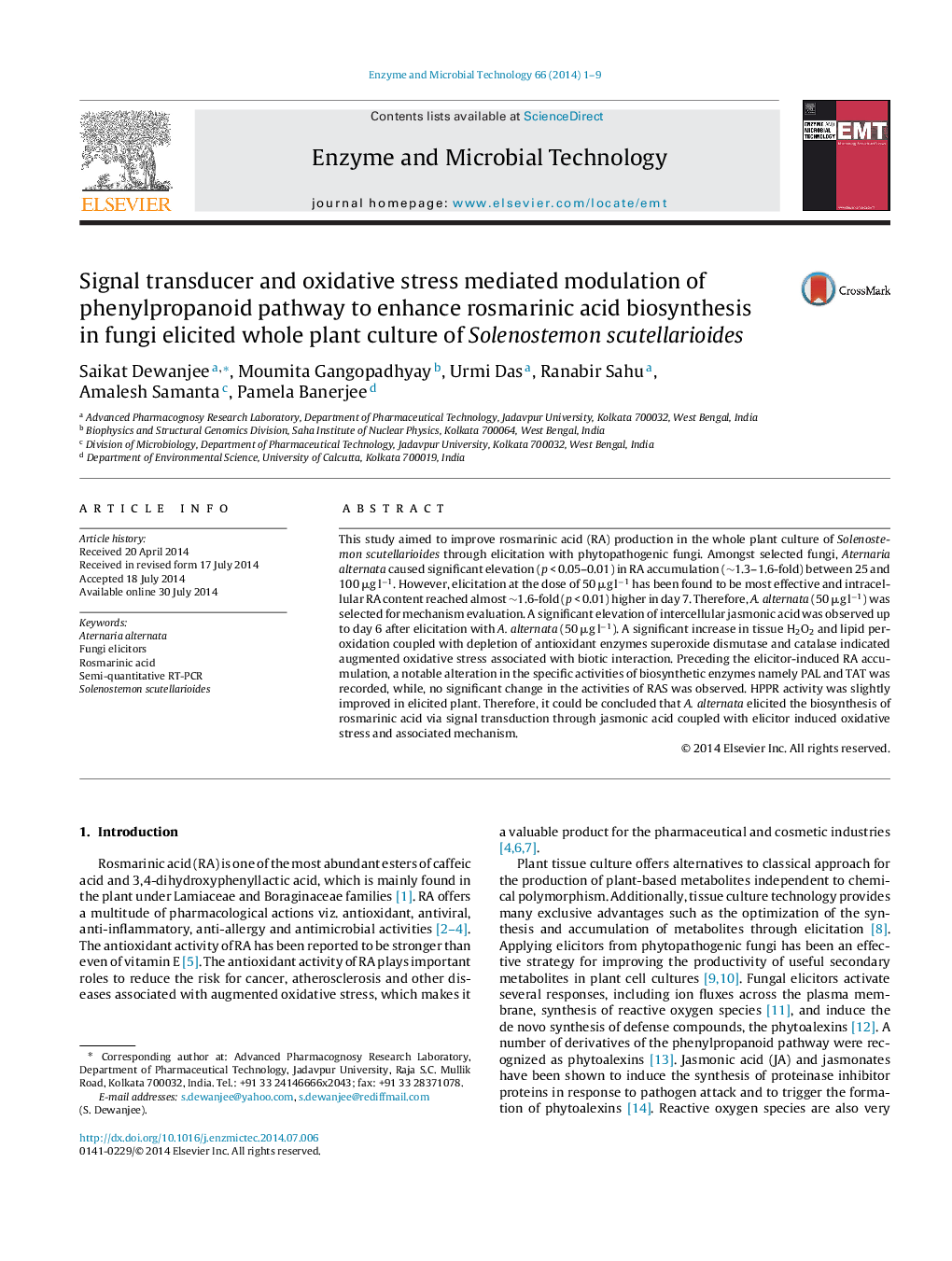| کد مقاله | کد نشریه | سال انتشار | مقاله انگلیسی | نسخه تمام متن |
|---|---|---|---|---|
| 16985 | 42629 | 2014 | 9 صفحه PDF | دانلود رایگان |

• The role of phytopathogenic fungi elicitors on RA accumulation in S. scutellarioides culture.
• Selection and optimization of fungi elicitor.
• Confirmation of the mechanism of elicitation.
• Evaluation of expression of enzymes involved in the biosynthesis of RA.
This study aimed to improve rosmarinic acid (RA) production in the whole plant culture of Solenostemon scutellarioides through elicitation with phytopathogenic fungi. Amongst selected fungi, Aternaria alternata caused significant elevation (p < 0.05–0.01) in RA accumulation (∼1.3–1.6-fold) between 25 and 100 μg l−1. However, elicitation at the dose of 50 μg l−1 has been found to be most effective and intracellular RA content reached almost ∼1.6-fold (p < 0.01) higher in day 7. Therefore, A. alternata (50 μg l−1) was selected for mechanism evaluation. A significant elevation of intercellular jasmonic acid was observed up to day 6 after elicitation with A. alternata (50 μg l−1). A significant increase in tissue H2O2 and lipid peroxidation coupled with depletion of antioxidant enzymes superoxide dismutase and catalase indicated augmented oxidative stress associated with biotic interaction. Preceding the elicitor-induced RA accumulation, a notable alteration in the specific activities of biosynthetic enzymes namely PAL and TAT was recorded, while, no significant change in the activities of RAS was observed. HPPR activity was slightly improved in elicited plant. Therefore, it could be concluded that A. alternata elicited the biosynthesis of rosmarinic acid via signal transduction through jasmonic acid coupled with elicitor induced oxidative stress and associated mechanism.
Journal: Enzyme and Microbial Technology - Volume 66, November 2014, Pages 1–9